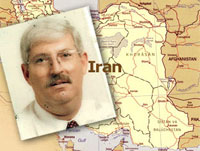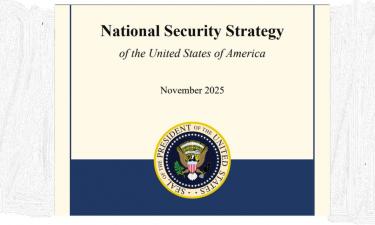US can do little to help its citizens detained by Iran
Christine Levinson, the wife of former FBI agent Robert Levinson, who disappeared during a trip to Iran nine months ago, said she would leave for Tehran early this week together with her son and sister to try to find her husband.

According to the Foreign Ministry Iran has allowed Christine to go to Tehran for information about her husband.
Pravda.Ru has interviewed Steven Groves, an international law expert, to find out what the United Stated can do to help Christine Levinson in such a situation.
Pravda.Ru: The United States has no diplomatic ties with Iran. Does this mean that will not provide Christine any help to find her husband?
Steven Groves: While the US has no direct relations with Iran, it has a line of communication with Iran through the Swiss embassy in Tehran.
The US government, despite its tense relations with Iran, has attempted to intercede on Levinson's behalf. The US made a request to allow Swiss diplomats to travel to Iran's Kish Island (Levinson's last know whereabouts) to look for Levinson. That request was denied by Iran
Pravda.Ru: Several Iranian-Americans have been jailed by Iranian authorities in recent months. What do the US authorities do to help US citizens in such situations?
Steven Groves: There is little the US can do when Iran (or any country for that reason) detains US citizens beyond utilizing diplomatic pressure. Recent US captives, such as Azima, Esfandiari, and Tajbakhsh were released likely due to the approach of Ahmadinejad's trip to New York.
Recently, Iranian authorities have prevented a number of Iranian-American citizen academics, journalists, and others who traveled to Iran for personal reasons from leaving, and in some cases have detained and imprisoned them on various charges, including espionage and being a threat to the regime. Americans of Iranian origin should consider the risk of being targeted by authorities before planning travel to Iran. Iranian authorities may deny dual nationals’ access to the United States Interests Section in Tehran, because they are considered to be solely Iranian citizens.
U.S. citizens who travel to Iran should exercise caution throughout the country, but especially in the southeastern region where Westerners have been victims of criminal gangs often involved in the smuggling of drugs and other contraband. For example, two Germans and one Irish were kidnapped and released in Sistan va Baluchestan in December 2003. American citizens should avoid travel to areas within 100 kilometers of the border with Afghanistan, within 10 kilometers of the border with Iraq, and generally anywhere east of the line from Bam and Bandar Abbas toward the Pakistan border.
Prepared by Alexander Timoshik
Pravda.ru
Subscribe to Pravda.Ru Telegram channel, Facebook, RSS!





